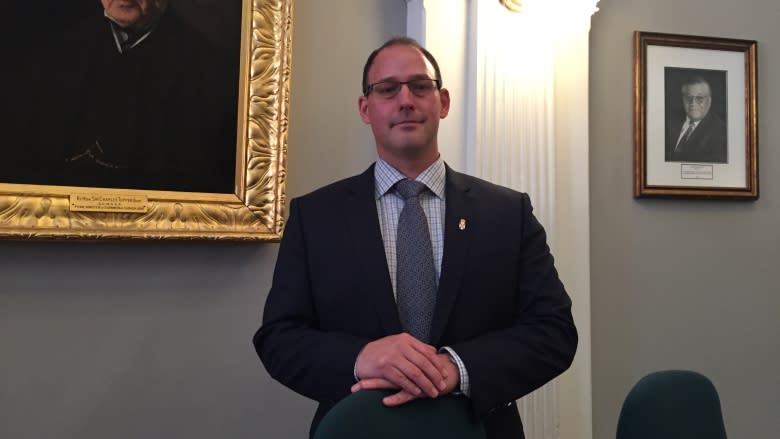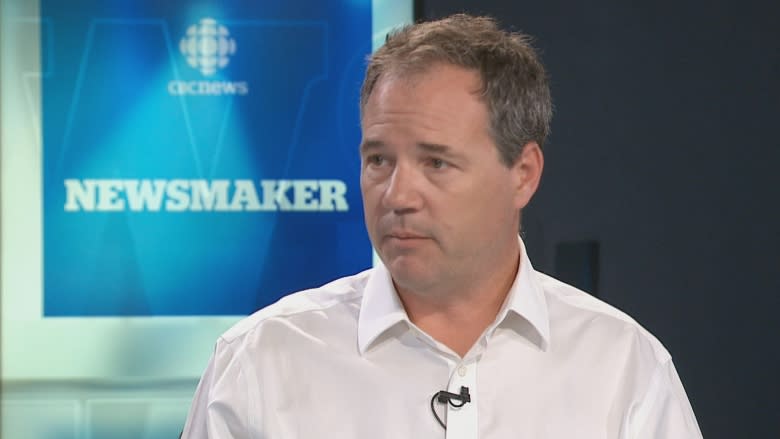New cyberbullying bill moving forward despite criticism that it's 'too cautious'
The man Nova Scotia relied on to draft Canada's first-ever cyberbullying law, one that was struck down two years ago for being unconstitutional, has warned governing Liberals the legislation drafted to replace it is too weak.
Wayne MacKay told the legislature's law amendments committee Monday that Bill 27, the Intimate Images and Cyber-protection Act, doesn't go far enough to properly protect victims.
"You've been too cautious in not giving enough powers to respond adequately to the problems for fear of violating constitutional rights," the Dalhousie University law professor testified before the nine-member committee.
He used the story of Goldilocks and the three bears as a metaphor, calling the first law "too hot for charter purposes," the new version "too cold," and said there needs to be something right down the middle.
The criticism echoes comments made by the lawyer who successfully challenged the original law in Nova Scotia Supreme Court over concerns it too greatly infringed on the rights of those accused of cyberbullying.
"I'm afraid the pendulum has swung a little bit too far," David Fraser, a lawyer with McInnes Cooper in Halifax, said in a CBC interview Friday.
But Justice Minister Mark Furey continued to stand behind his bill Monday, calling it "the right balance."
Although both he and Premier Stephen McNeil had indicated Bill 27 could wait until next spring to proceed in order to give the public and interested parties time to comment, Furey said it could now pass third and final reading by Thursday.
"The Opposition supported the bill, which was encouraging," Furey told CBC News. "There was limited presentation at law amendments."
Although the Official Opposition Progressive Conservatives did support passage of the bill, the NDP wanted Justice Department lawyers to take another look at the law.
Former high school teacher-turned-MLA Tim Halman said the PC caucus wants a new law in place as quickly as possible.
"It's our position that we think this bill needs to move forward," he told reporters. "We need the protections in place because as you know, as it stands right now, we don't have a law on cyberbullying. So while it may not be perfect we feel that if it's passed we can get changes made moving forward."
The proposed law, which was introduced earlier this month, more narrowly defines cyberbullying. It also takes away the ability of Cyberscan, the unit that enforced the previous law, to seek court orders compelling perpetrators to stop. Under the new law, it would be up to individual victims to seek recourse through the courts.
MacKay, who is the former chair of the Nova Scotia Task Force on Bullying and Cyberbullying, offered a number of suggestions during his 15-minute presentation, including beefing up the role of Cyberscan.
"They should have some investigative role and potentially some initiation role," he said. "It does put a big burden on victims in these cases to be the ones to initiate and pursue the whole thing, so I think that those powers should be reinstated."
According to MacKay, the proposed law "neuters" Cyberscan, which would instead turn almost all its attention to public education. He also worries that forcing victims to take civil action against an abuser might prove too costly for victims and their families.
"Just the cost, never mind lawyers' fees, it's about $300 or $400 just in filing fees to initiate an action," he said.
Fraser raised similar concerns in a letter to the committee: "I expect it would cost at least $10,000 for me to represent an applicant in this process. That is daunting."
Fraser also criticized the speed at which the bill is being dealt with.
"I do not know if this is peculiar to this bill, but it certainly was the case with the original Cyber-Safety Act and Nova Scotians have suffered as a result," he wrote.
Speaking to reporters following his presentation, which was the only public presentation to date, MacKay said he was disappointed with the government's decision to move ahead with Bill 27 unchanged.
"Well I'm a bit disappointed about that, in the sense that I think there were and are some relatively friendly and simple amendments that could further promote the stated purposes of the act, which is helping victims to have access to remedies, and I'm not entirely sure why that opportunity wasn't embraced here."










